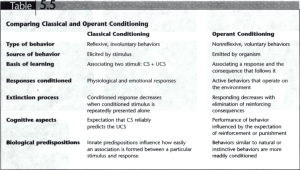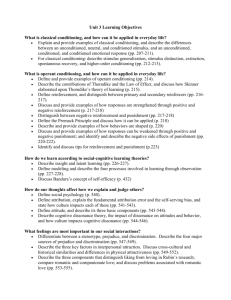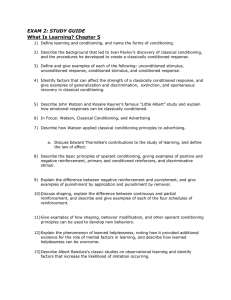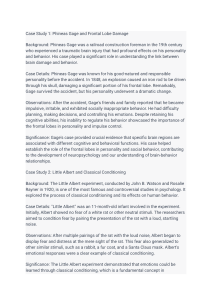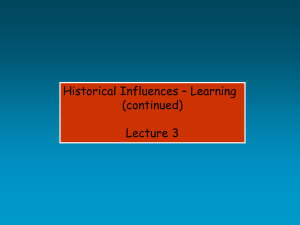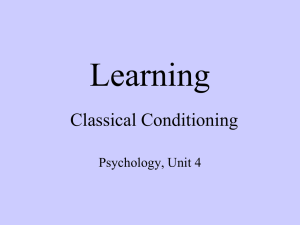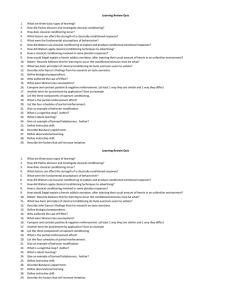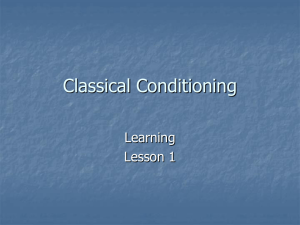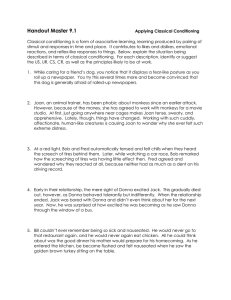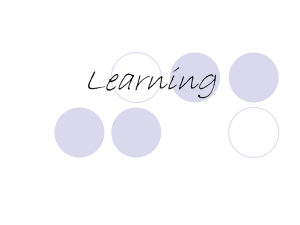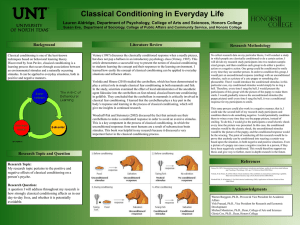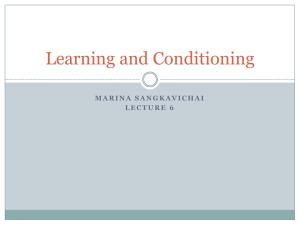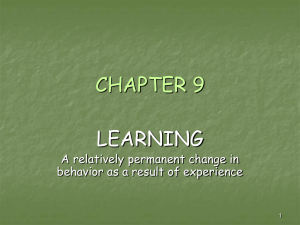Chapter 9
advertisement
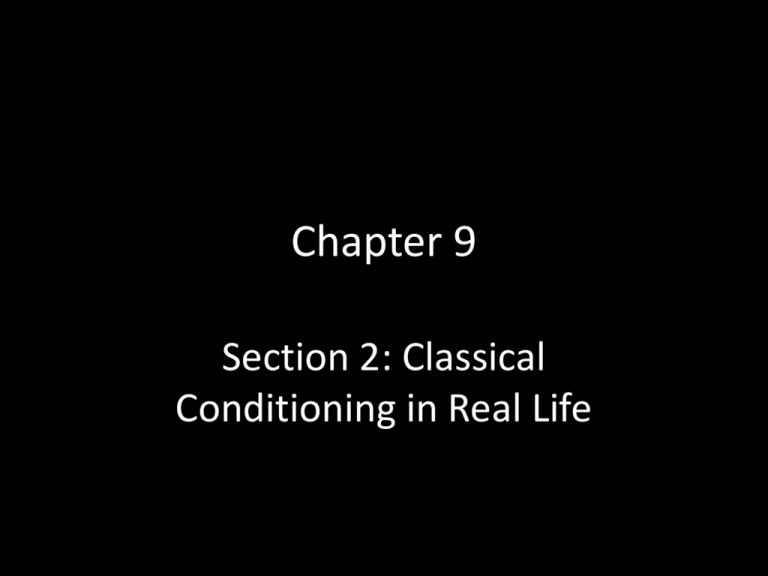
Chapter 9 Section 2: Classical Conditioning in Real Life • Example Learning to Like • Classical conditioning plays a big role in our emotional responses to objects, events, or places Learning to fear • A person can learn to fear just about anything if it is paired with something that elicits pain, surprise, or embarrassment –Humans are susceptible to certain kinds of acquired fears • Spiders, snakes, or heights • Can be dangerous to your health, tendency to learn quickly to be wary of them • When fear of an object or situation becomes irrational & interferes with normal activities, it qualifies as a phobia • An 11-month old boy – named “Albert” – was conditioned to fear a white laboratory rat –Each time he reached for the rat, Watson made a loud clanging noise right behind Albert • Albert’s fear generalized to anything white & furry –Including rabbits & Santa Claus 9-6 Was this study ethical? Counterconditioning • In classical conditioning, the process of pairing a conditioned stimulus with a stimulus that elicits a response that is incompatible with an unwanted conditioned response. Wade and Tavris © 2005 Prentice Hall 9-8 Accounting for Taste • Many people have learned to dislike a food after eating it & then falling ill, even when the food was not the reason for the sickness –Usually takes only one time because of the existence of greater biological readiness to associated sickness with taste Reacting to Medical Treatments • Can create unexpected misery or relief from symptoms for reasons that are entirely unrelated to the treatment itself • Unpleasant reactions to a treatment can generalize to a wide range of other stimuli • Patient may also have reduced pain & anxiety when they take placebos –Role of expectations


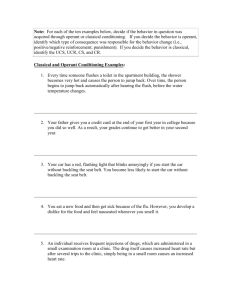
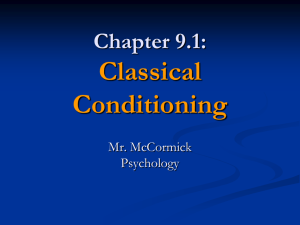
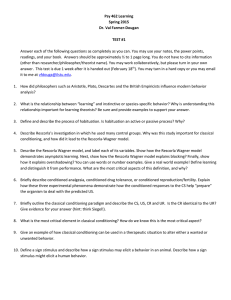
![11th grade 2nd quarter study guide[1]](http://s2.studylib.net/store/data/010189415_1-a4e600e9fc2ee42639f67b298d930b48-300x300.png)
